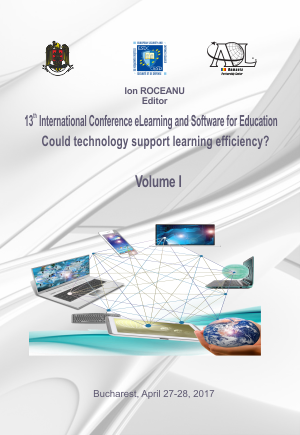LINKEDIN AS A RESEARCH COMPANION. ASSESSING THE LEARNING BENEFITS OF AN ENTREPRENEURIAL PROGRAM THROUGH A QUASI-EXPERIMENTAL APPROACH
LINKEDIN AS A RESEARCH COMPANION. ASSESSING THE LEARNING BENEFITS OF AN ENTREPRENEURIAL PROGRAM THROUGH A QUASI-EXPERIMENTAL APPROACH
Author(s): Ştefania Matei, Razvan RUGHINIS, Daniel RosnerSubject(s): Social Sciences, Education
Published by: Carol I National Defence University Publishing House
Keywords: LinkedIn; entrepreneurship; quasi-experimental methodology; content analysis.
Summary/Abstract: In this paper we introduce a quasi-experimental methodology to assess the benefits of an entrepreneurial learning program, based on LinkedIn profile data. We compare the career paths of two cohorts of participants in the mentoring sessions of the Innovation Labs pre-accelerator, compared with a control group formed by persons of similar age and entrepreneurial interest who did not benefit from the added value of the mentorship program. We appraise the advantages and limitations of studying online traces of professional identity in LinkedIn public profiles. We discuss how a content analysis of LinkedIn public profiles illuminates the impact of Innovation Labs as a significant learning experience. In this sense, we present our proposed quasi-experimental method in terms of: (1) objectivity: digitally mediated factuality as a product of design; (2) narrativity: modes of subjectification through self-making practices; (3) sociality: social relations, systems of acknowledgment, and reputation building processes; (4) performativity: the role of digital traces and online inscriptions in reality construction. In order to assess the learning benefits of Innovation Labs, we take into consideration various forms of capital which are circulated on the participants’ profiles, and we reflect on processes through which social capital is converted into symbolic resources, intellectual assets and career horizons. We also explore how participation in the program is framed and described, on LinkedIn public profiles, as a significant experience in one’s professional development. Therefore, our study is significant not only in refining impact evaluation theory and research, but also in understanding how technology shapes our knowledge of the professional world, with practical implications on developing effective strategies of professional self-presentation and reputation consolidation.
Journal: Conference proceedings of »eLearning and Software for Education« (eLSE)
- Issue Year: 13/2017
- Issue No: 01
- Page Range: 464-471
- Page Count: 8
- Language: English

